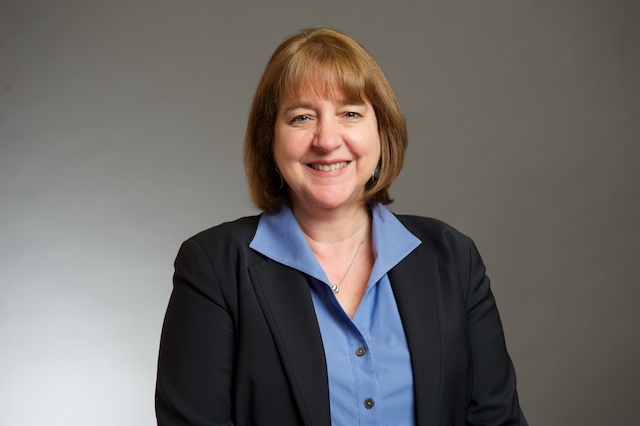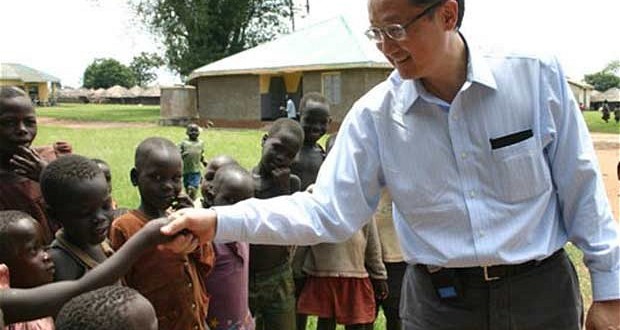The following blog post originally appeared in the Global Business Hub section of boston.com. It was written by Mary Thompson-Jones, faculty director for Northeastern University College of Professional Studies’ Global Studies and International Affairs program and a former State Department official.
If he’s smart, World Bank President Jim Yong Kim will not only speak to the 111th Northeastern University graduating class—he’ll actively recruit them.
Boston area graduates from Northeastern and elsewhere are exactly what the World Bank and other international financial institutions need. Today’s graduates are more multicultural and more multidisciplinary than their colleagues from even a decade earlier. They come from more countries, speak more languages, and thanks to programs such as Northeastern’s Dialogues of Civilization and an ever-growing menu of co-ops, internships, and service learning projects, they are more likely to have studied and/or worked abroad.
When Dr. Kim took the helm of the World Bank less than a year ago, his appointment made waves because he is not the usual banker, but rather a physician and anthropologist with an impressive record in international public health policy. Critics saw his appointment as a slap to World Bank presidents of the past; supporters hailed it as an enlightened vision demonstrating that the economics of development needs experts from a wider range of disciplines. Still others said that after the scandals in international financial institutions (Paul Wolfowitz of the World Bank and Dominique Strauss-Kahn of the International Monetary Fund) it will be leadership skills, rather than knowledge of economics, that set the course for the organization’s future.
The World Bank is a collection of 188 countries who contribute funds which are dispersed in development projects focusing on the least developed parts of the world. With its sister institution, the International Monetary Fund, both were creations of the postwar era. They were conceived (in a mere three weeks) in July 1944 at the Mount Washington Hotel in Bretton Woods, New Hampshire, about 80 miles northeast of Dr. Kim’s previous workplace, Dartmouth College.

Mary Thompson-Jones, EdD
The Bank and the Fund became the institutions everyone loved to hate in the 1990s and 2000s, and their meetings were the scene of street fights and anti-globalization riots by coalitions of unlikely partners. The people doing the shouting may not have known much about international finance, but they knew instinctively that these gatherings of suit-clad bankers had gotten it all wrong.
To be sure, Dr. Kim inherits an institution with a legacy of some spectacular failed projects. They were launched in an era in which the Bank favored massive infrastructure construction that left countries with highways to nowhere, hydroelectric dams that wreaked environmental damage, or billion dollar pipeline projects that proved too tantalizing for countries with weak governance, in which stealing was all too easy.
To be fair, the World Bank is hardly the only institution to discover that helping people out of poverty is harder than it looks. The list of funders who are associated with failed projects includes the United Nations, USAID and other national assistance agencies, and the world’s most respected NGOs.
Those failed projects should not mean that the World Bank’s mission of eradicating poverty is not worth pursuing. More than two billion of the world’s citizens live in poverty, defined as $2 a day. More than one billion – 20 percent — live in extreme poverty, on $1.25 a day. The need is there. For every project that gains headlines for its failure, there are a growing number of small micro-projects that have made a huge difference in people’s lives. Often they succeed because brilliant, dedicated people with a multiplicity of skills broke down institutional barriers and joined forces.
Dr. Kim’s educational background ought to resonate with today’s graduates. They are…used to working more collaboratively, reaching across knowledge boundaries, forging creative partnerships that no one thought of earlier.
Tomorrow’s projects are likely to break down traditional intellectual disciplines too. The World Bank is delving into new areas, such as civil society organizations. It recognizes that development work must include a broad national consensus that will be forged far beyond the halls of government. Development work must also include outreach work, to ensure marginalized people have a voice in projects that affect their future. This is exciting, difficult, and worthwhile work.
Dr. Kim’s educational background ought to resonate with today’s graduates. His idea of combining a medical degree and a doctorate in anthropology was uncommon back in the early 1990s. But today’s graduates routinely combine all manner of disciplines in imaginative and insightful ways. They are also used to working more collaboratively, reaching across knowledge boundaries, forging creative partnerships that no one thought of earlier. This kind of talent, coupled with a global outlook, is exactly what the World Bank needs.
Let’s hope Dr. Kim knows this, and turns his speaker’s platform into a call to service.
The image of Dr. Jim Yong Kim that accompanies this post originally appeared in The Telegraph.




